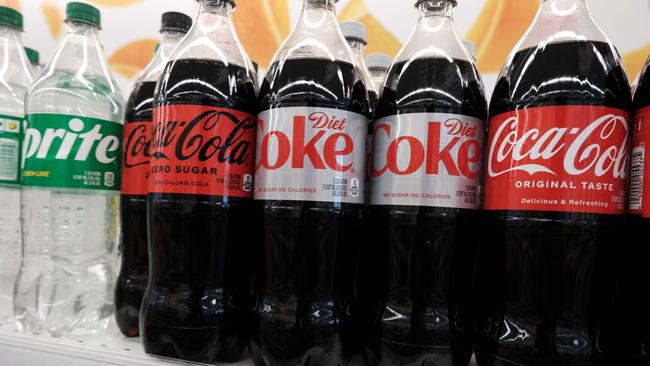Aspartame, sugar substitutes potentially linked to heart disease
A new study has underlined the feared health risks of sugar substitutes like aspartame, suggesting it could leave consumers at risk of heart disease.

The sugar substitute aspartame, which is used in some soft drinks, has been linked to heart disease, although further research on humans is required.
A Swedish, American and Chinese trial on mice has built on previous findings that urged vigilance towards sugar substitutes, the health impacts of which are unclear despite being marketed as diet aids.
When mice were placed on an aspartame diet, their bodies released more insulin, had higher levels of inflammation and developed fatty plaques in their arteries. All three symptoms point towards heart disease, though there is no certainty a human test subject would have the same biological response.
University of Adelaide senior lecturer on medicine Ian Musgrave said the paper, published in the peer-reviewed journal Cell Metabolism, was “unlikely to be of direct relevance to humans”.
“This study was done in mice that were genetically engineered to lack a key lipid transporter,” he said,
“Artificial sweeteners play a role in people’s attempts to control their calorie intake and reduce weight. However artificial sweeteners have come under attack for several false assertions about their health effects.
“A recent concern is that their sweetness may have an impact through the body’s sensors for sweetness that causes inappropriate hormone responses.”
The study is the first of its kind to study the biological processes potentially linking sugar substitutes to heart disease, and researchers theorise that because aspartame is many times sweeter than sugar, it prompts the intestine to release an excessive amount of insulin.
The 12-week study involved dosing mice with aspartame as 0.15 per cent of their daily caloric intake, which equated to three diet soft drink cans daily in humans. When placed next to a control group, the mice that consumed the aspartame were at higher risk of heart disease.
“While earlier studies had suggested a connection between artificial sweeteners and cardiovascular risks, this new research provides compelling evidence that these sweeteners directly cause cardiovascular disease,” said Federation University biomedical science lecturer Yutang Wang.
“Though the study does have some limitations – such as being conducted in mice and testing only one sweetener – it adds weight to the growing body of research urging caution. It may be time to reconsider our consumption of artificially sweetened products.
“Reducing their intake could be a simple yet powerful step to protect ourselves from heart attacks and strokes.”




To join the conversation, please log in. Don't have an account? Register
Join the conversation, you are commenting as Logout